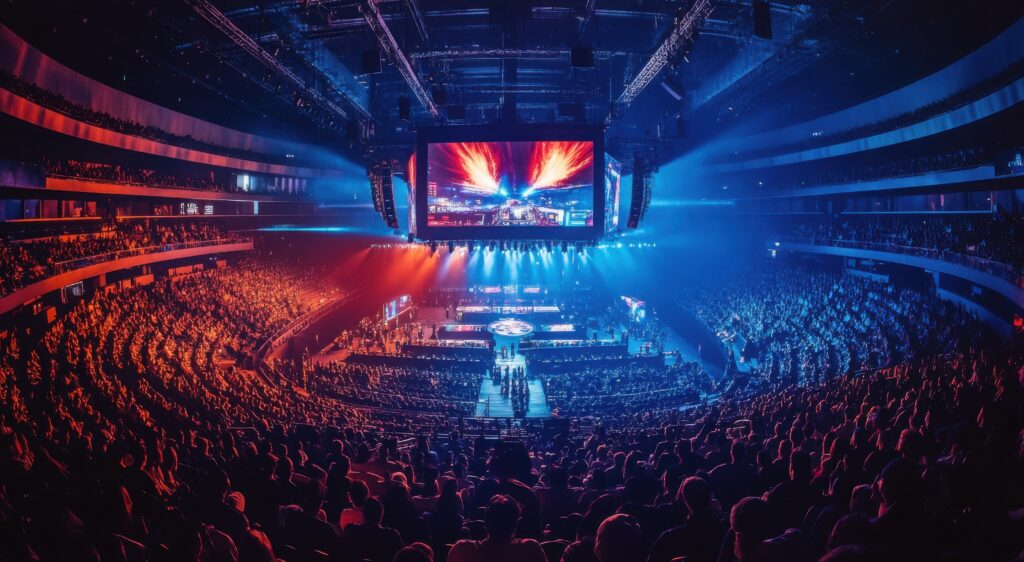Revamping Post-Production and Technology Workflows for Remote Collaboration at Gorilla
In mid-March, media and entertainment companies across the globe and throughout the industry began to face what China had experienced since January — the realities of the Coronavirus Pandemic social distancing and isolation. Amidst this public health crisis, companies abruptly confronted extreme technical and workflow challenges while continuing to create and distribute content.
During this historic outbreak, Signiant launched “The Pandemic Series,” a collection of articles, interviews, and other content from the industry, for the industry.
As part of the series, Signiant interviewed industry professionals on how they transitioned and maintained remote work, what their challenges and successes were, and what lessons they’ve learned from it. Each one is a snapshot in time from their particular company, industry, geography, and personal perspective.
Cardiff, Wales | April 16, 2020
SIGNIANT: Tell me about Gorilla.
RHODRI JAMES: Gorilla is a television and film facilities company specializing in post-production. It’s a big facility based in Wales, Cardiff, in which we are the biggest player around. We have all the major clients, so that’s BBC, ITV, Netflix, HBO, et cetera. We’re a service industry really, though I don’t like that term. We work out what’s right for our clients, and we put in place the appropriate workflow that suits them.
We tend to use Avid Media Composer — probably around a hundred — as our main editing platform and Pro Tools, et cetera. And we use things like Resolve and Baselight to grade on.
SIGNIANT: Before COVID-19, were you working mostly in the facility? Were you already doing remote collaboration and editing? What was that landscape like?
RHODRI JAMES: I would say 98% of editing was on premise. We started doing some R&D into remote editing, therefore allowing the ability to people to do true remote editing from home. They are literally controlling our facilities from home. Actually, I would say probably 95% on prem, 5% off prem. Now we’ve flipped it completely.
SIGNIANT: When did you and your company go into social isolation?
RHODRI JAMES: We really started around the 23rd of March.
SIGNIANT: How much warning did you have to do that transition?
RHODRI JAMES: We had about two weeks prep. We had the building blocks for the core infrastructure, in terms of internet connectivity, firewalls, VPN clients — all of that was available. We did do some procurement where we acquired some hardware to allow for remote PC over IP.
SIGNIANT: Like Teradici?
RHODRI JAMES: Exactly, Teradici. Though we had some, we procured a lot more very quickly. But we also had to move many Avids, because in some situations, people’s connectivity wasn’t sufficient. I mean really bad connectivity with people living in rural areas. We probably moved around about 20-25 machines and deployed them to where they needed to be deployed.
SIGNIANT: Were you at a hundred percent capacity after those two weeks? Was there any diminishment in capabilities?
RHODRI JAMES: We weren’t quite 100%. Probably around about 80%, but that did cause quite a lot of stress.
SIGNIANT: Was it the stress on the technology side to get it prepared? Was it the stress on the content making? Was it the stress on the culture?
RHODRI JAMES: I think it’s stress on all points. I think what’s difficult is, and still is, is the people part of it. I think it was trying to react to our clients who didn’t necessarily know what they wanted, and therefore, we had to be proactive in suggesting them options. Doing surveys to editors to find out what they have at home, what connectivity they have at home. Testing that, and once we had all the facts, come up with a plan to do the deployment.
SIGNIANT: What were the biggest challenges for you personally?
RHODRI JAMES: Time. I think it’s the biggest challenge. It’s been frantic. It’s been so frantic. Every day is just inventive in a way. Trying to get everything done within an unknown timetable and deploying technology at a slightly wider scale than we’ve done before. I’m not one who likes to do unknown deployment. I like to do something which is tested and proven and then deploy it. The rule book was being ripped up and we would just go for it.
And also, something I haven’t mentioned, as a director of the companies, is trying to think of the health and safety and the welfare of our clients and our staff while doing this. Getting people off-site for their safety but also for the people who still need to be around as well. We’ve got a skeleton crew on-site because we still need some physical presence. And therefore, removing and putting people at home has allowed us to keep the work to be a safe environment.
That was a major challenge in trying to work out what was the impact and trying to keep everybody safe. Which is one of the primary responsibilities of a company and its directors.
SIGNIANT: That sounds like a big leadership challenge for you.
RHODRI JAMES: I think it was. Luckily, we’ve got a strong management team, and the communication level has gone up. Everybody’s been quite calm. Taking every day as it comes, but also trying to think ahead. Not too far ahead, but just to think day by day, week by week, and react in a timely way. Very challenging in terms of leadership, but I’m incredibly proud of the company. I’m incredibly proud of the staff.
SIGNIANT: What hasn’t gone well?
RHODRI JAMES: I’m glad to say we haven’t had any major issues. We haven’t had any disasters. We have had a dip in revenue because of the situation, but so far, it’s been okay. The two-week window I talked about was enough for us to mitigate any issues.
SIGNIANT: Has there been any other infrastructure or external equipment that you’ve had to implement in order to keep working?
RHODRI JAMES: Not really. We’ve been doing a lot more of video conferencing. Not so much of the communication side, but the ability to record video conferencing. We’ve had to adapt around those challenges of recording content in a different way. That’s one of the areas that we wouldn’t normally focus on. And there’s been some investment there to allow us to do that.
Luckily, products or vendors such as Signiant, have made it very easy for us to expand our usage without any true costs. We currently run Media Shuttle. We’re a 20-user site, though we scale up and scale down and therefore are charged accordingly. But I think at the moment we’re probably around about, I think around about 85 users—maybe a bit more—about a hundred. We are very appreciative of Signiant being incredibly progressive by doing what they’ve done.
SIGNIANT: Has security been a factor during this time?
RHODRI JAMES: We were largely prepared being a security-conscious company and security ratified by various bodies. So that wasn’t so much of an issue. But I think what’s important is the people culture. To tell people, just because we’re under pressure, because we got to do things a little bit different, is to be aware that we don’t lapse any security and to be still security conscious. Because security risks are probably higher now than it’s ever has been.
Though we’re trying to make our infrastructure more accessible, that doesn’t mean we don’t take it as seriously as you should. I think it’s really important, from a leadership perspective, to drill into people to be even more conscious of security than ever.
SIGNIANT: How has your company’s staff taken to remote work and collaboration?
RHODRI JAMES: Really well. I think it takes a little bit longer. But they’re communicating well. They’re using things like Microsoft Teams as a means of communicating in real-time throughout the day. Communication is everything at the best of times, but it’s even more so in this case because things can be lost in translation very easily. People are being amazingly adaptive and incredibly patient. They’ve shown really strong character in doing that.
SIGNIANT: Is much of this remote work temporary?
RHODRI JAMES: I think there’s no doubt that further remote working is here to stay. But to what extent that will be is going to be interesting. We were slowly heading in that direction. Hosted platforms or cloud was allowing that. In certain roles outside of the creative industries — specifically in sales or other professions — people were working at home. I think the creative industry was going in that direction but at a far slower pace.
It’s going to come down to people, to be honest with you. I think actually people quite like working with each other. Working physically with somebody is more creative and quicker. It’s new ground and it’s going to be interesting to see what culture change it’ll create and what that will change in business as well. But now, there will be further options and people’s eyes will be open to what the advancement of technology allows one to do.
SIGNIANT: From a technology and infrastructure point of view, if this does continue longer into than initially thought, what do you have to alter for that longevity?
RHODRI JAMES: I mean that’s complex. I think from an infrastructure perspective, I mean we’re lucky. We’ve invested heavily in our infrastructure anyway. It’s something which is something I get excited about in terms of infrastructure because if it’s not in place, you can’t offer options. I think in the longer term it’ll help me. I think I won’t have so much arguments about infrastructure investment. But I think the only true alteration is not really an alteration, but I think we’ll be investing more in it.
SIGNIANT: If you could go back in time and talk to yourself two months ago, what would you tell yourself to prepare for?
RHODRI JAMES: There’s probably several projects that I still haven’t done, which I wish I had done by now. I mean that’s a difficult question, to be honest with you. It’s not necessarily a useful thing because the situation has happened really. I think honestly, and I think we’ve handled it really well.
I think we were lucky that we are a dynamic company. We are creative in our technical solutions and we’ve always been very reactive and therefore we are used to deploying things quickly. We are used to deploying things remotely, whether it’s physical or in software. And therefore it’s, to be honest with you, what it’s done and where I have talked to myself, it has justified some of my actions where I’ve invested in infrastructure. When I bought that £30,000 firewall, which handles 500 users in VPN, I think I’ve justified that purchase now.
SIGNIANT: What’s the story that you’re going to be most proud of during this time?
RHODRI JAMES: The fact we adapted to it. I have been in work almost every day, so the irony is everybody is going to talk about while they were at home. My story is, well I wasn’t, I was actually physically in work and operating, needing to show some leadership and operating the company for the needs of the industry and for the welfare of the staff. And talking about the staff, I’d like to say how proud I am of them, how adaptable they’ve been and how they’ve embraced this new way of working, without them doing this, it would never have worked!
SIGNIANT: What would be valuable for your peers to know from your experience?
RHODRI JAMES: I’m really proud to be the technical part of the creative industries. I think the technical side is not seen as creative sometimes, but I think we are as creative as the program makers, who are seen as creative. And this period is shown a light to the technicians in creating rapid, creative solutions and allowing people to be at home and to be safe at home.
This interview was edited and condensed for clarity.


